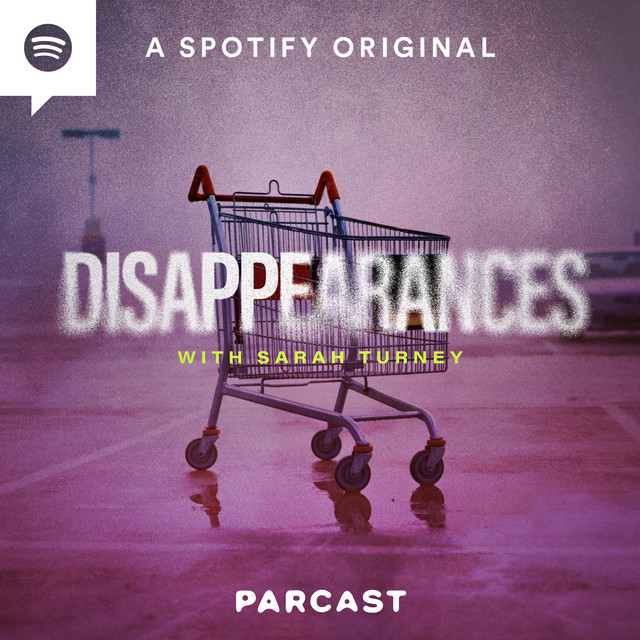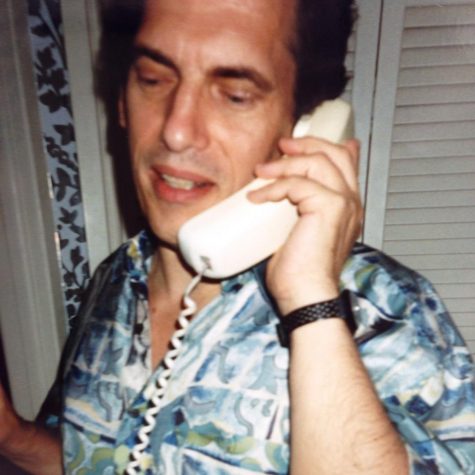Sarah Turney Spotlights Grief in New “Disappearances” Podcast
Sarah Turney reflects on grief over the disappearance of her sister in “Disappearances” podcast. (Courtesy of Pia Fischetti for the Fordham Ram).
After her sister Alissa went missing in 2001, Sarah Turney turned to social media to spread the word about her sister’s case in hopes of getting tips and leads on where to find her. Sarah used platforms like Instagram, Twitter, podcasts and TikTok to encourage an investigation into her father Michael’s possible involvement in Alissa’s disappearance. In August 2020, Michael was charged with the murder of Alissa Turney.
In Turney’s new “Disappearances” podcast, she investigates details from historical cases of why people go missing, how investigations are conducted and how families cope with the potential loss of kin from the perspective of someone who “knows how hard it is to lose someone you love, especially when you don’t have all of the answers.”
The first episode, released on Sept. 9, covers the famous story of Etan Patz, a 6-year-old boy from New York who went missing while boarding the bus on the way to school. Etan’s parents had let him walk to the school bus by himself on the morning of May 25, 1979. He never made it to school.
Much of the national attention from this case was the result of Etan’s parents spreading awareness through the media, as Turney did for her sister. Not only did this case pressure the authorities and public to pay attention to disappearances, but it also led to the founding of the National Center for Missing and Exploited Children and the once-common practice of putting pictures of missing people on milk cartons.
Turney’s perspective on this case is unique in the way it highlights the family’s grief. She, like Etan’s two siblings, understands what it’s like to have a sibling go missing. In these kinds of cases, we don’t usually hear the sibling’s perspective, as the media wants to protect childrens’ privacy. Turney can speak to what it may have been like for Shira and Ari Patz to wake up one day without someone in the top bunk. She can also relate to his parents’ struggle of dealing with police questioning. In the beginning, the police thought Etan may have run away and were suspicious of his parents and whether or not they could have given him a reason to want to disappear. Similarly, in Alissa’s case, the police found a note indicating she had run away. Alissa’s case wasn’t treated with the same rigor as it would have if it had immediately been investigated as a homicide.
The second episode, released on Sept. 16, covered the disappearance of Michael Rockefeller, the son of former Vice President Nelson Rockefeller. Michael went missing after traveling to Netherlands New Guinea in November 1961 to study the Asmat tribe and collect tribal artwork to take back to his family’s Museum of Primitive Art. Michael disappeared when his and Dutch anthropologist Rene Wassing’s boat was overturned. Michael tried to swim to shore for help, but was never seen again. The Dutch government told the Rockefeller family that he likely drowned at some point during his three mile swim to shore. However, some rumors began to circulate about the possibility that Michael was killed and cannibalized by the Asmat.
Turney’s perspective in this case reflects the pressure of the media and how it affects the family of a missing person. The Rockefellers’ every move was always watched due to their fame and wealth, but with Michael’s disappearance, the family couldn’t take a breath without being asked for a statement. Turney speaks to how overwhelming the media can be while a family is trying to cope and grieve, but she also speaks to the guilt that family members may feel for not doing enough. The media heavily questioned the Rockefeller family in regards to how quickly the investigation into Michael’s disappearance wrapped up. They were told that he had drowned, and they wanted to begin to grieve in peace. Later, when the murder and cannibalism rumors began to spread, the Rockefellers were even criticized for sticking to the narrative given to them by the Dutch government.
Sarah Turney brings a unique and rarely-heard perspective to her podcast that pulls listeners away from solely gawking at the gory details, but allows them to see what families of missing people go through. At the end of the first episode, Turney says, “For me, the story of Etan Patz is a reminder that how I tell the stories of the missing matters. Because at the centers of all of them are real people, from all walks of life, dropped in impossible circumstances. They deserve their stories to be told with nuance and empathy [as] they rarely have clean endings.”











































































































































































































